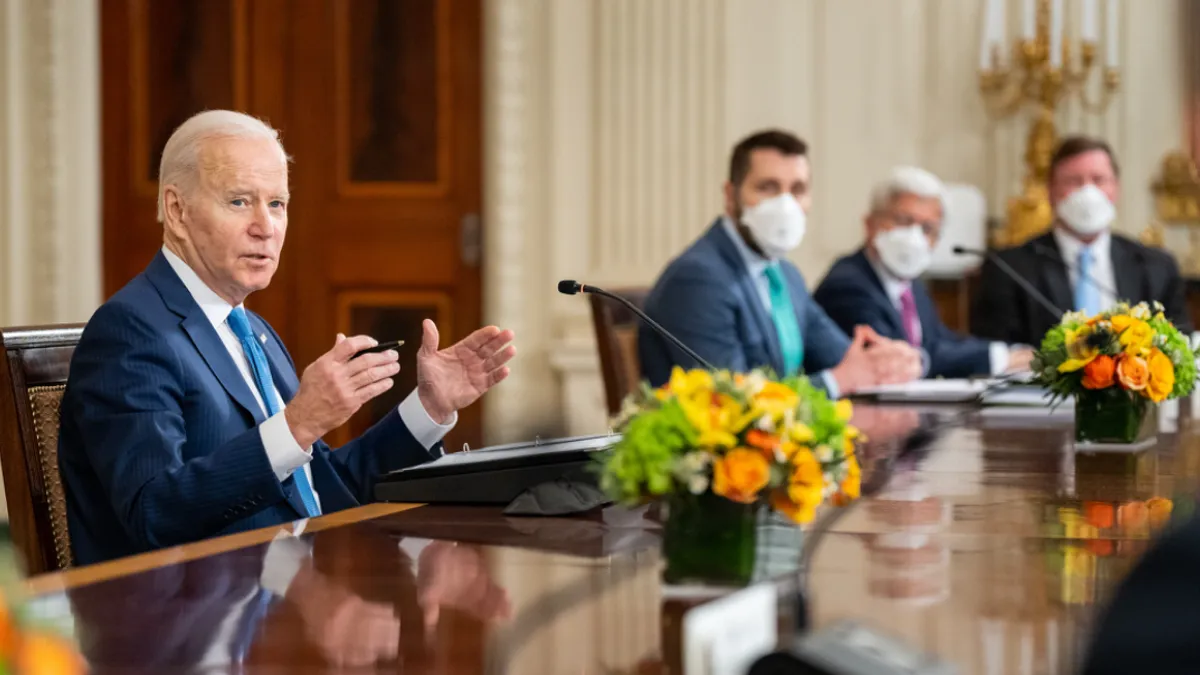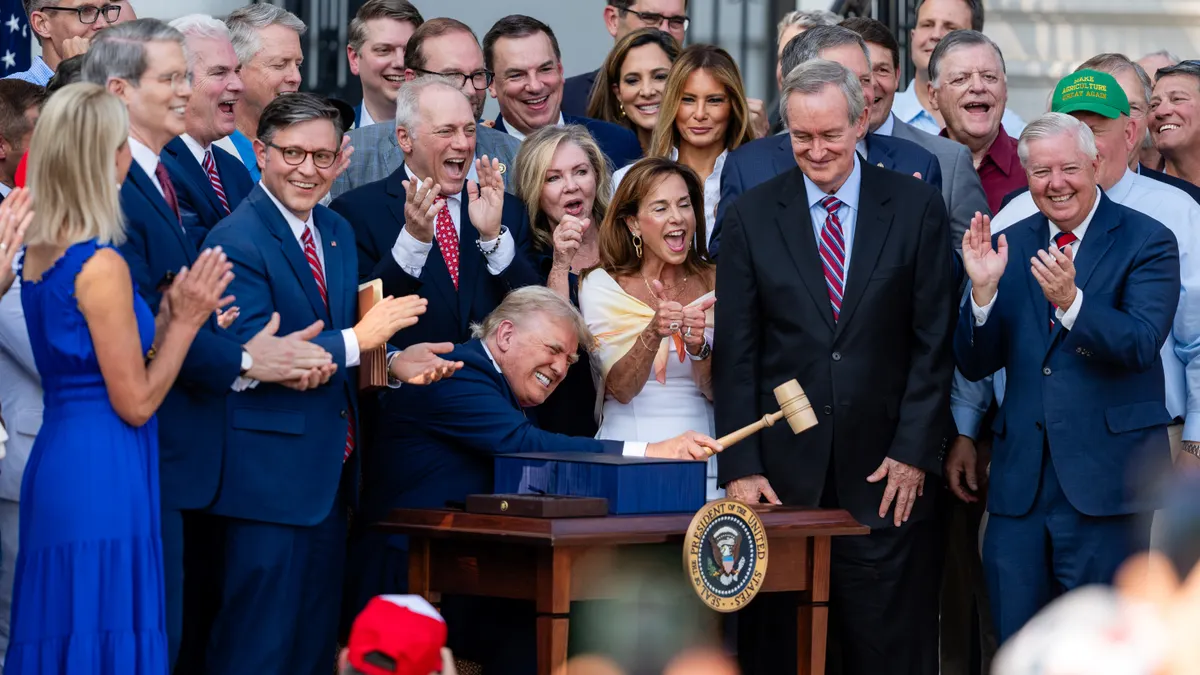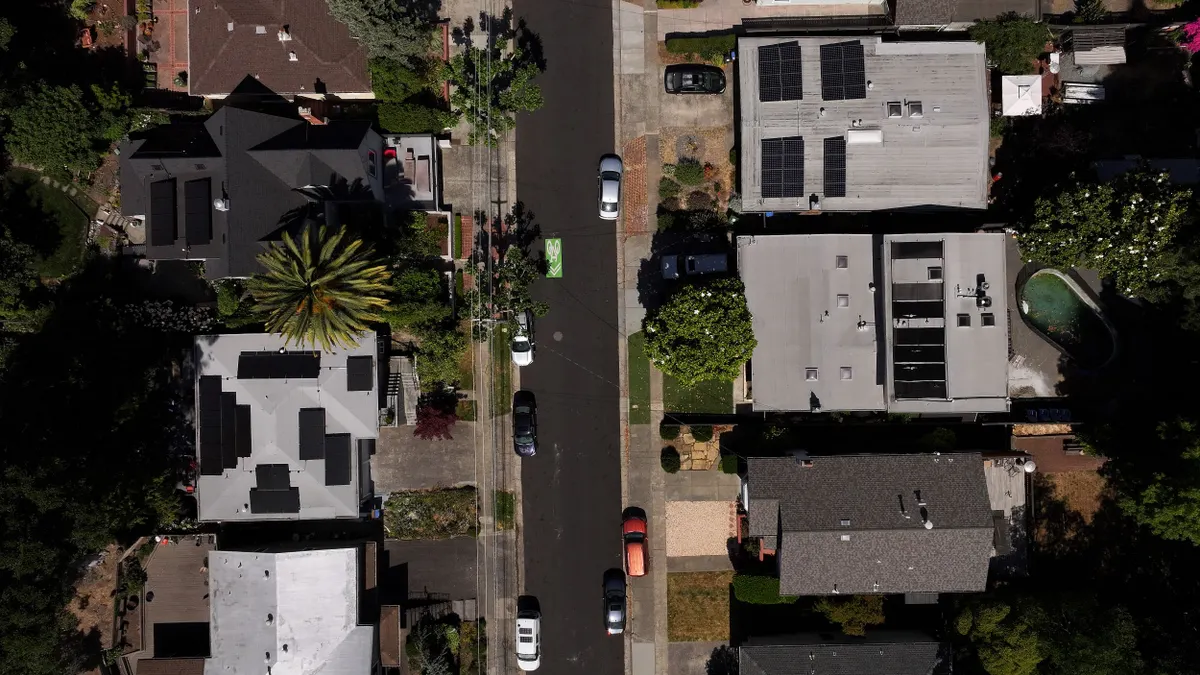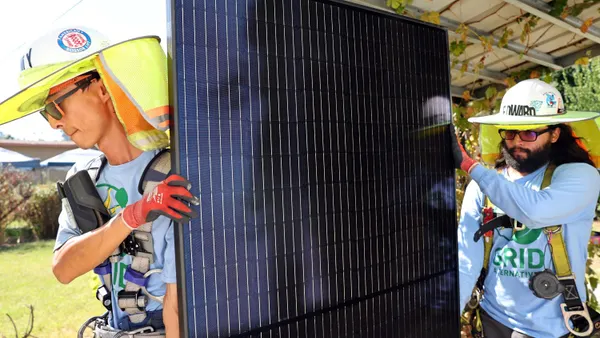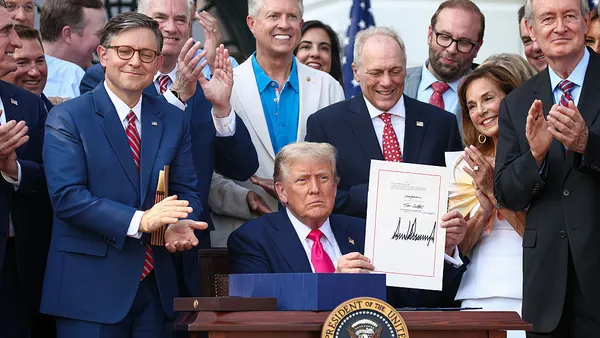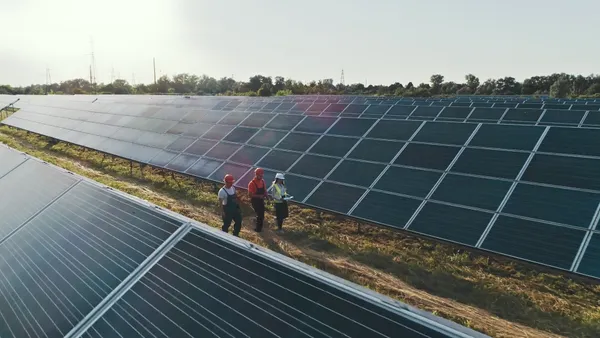Dive Brief:
-
Top utility executives met with President Joe Biden and White House officials Wednesday to push clean energy-related tax provisions that were in the stalled Build Back Better (BBB) legislation.
-
"This legislation is going to allow us to be carbon-free sooner, gives us renewable portfolio standards, allows us to securitize to keep costs down for customers, and, very importantly, Mr. President, it provides for a just transition," Patricia Vincent-Collawn, PNM Resources chairman, president and CEO, said at the White House meeting.
-
The meeting came amid efforts by renewable energy developers, environmental groups and others to convince Congress to pass the roughly $500 billion climate-related portions of BBB now that plans for the future of BBB in Congress are uncertain.
Dive Insight:
The White House invited the utility executives to the meeting to discuss the energy transition and how federal legislation, such as a "robust" package of clean energy tax credits, could support it, according to Vincent-Collawn.
The roughly $1.9 trillion BBB climate and social spending legislation contains about $200 billion in energy-related tax credits, Biden noted during the meeting.
Those credits can help utility customers save money as utilities add renewable-energy facilities to their systems, according to Nicholas Akins, American Electric Power chairman, president and CEO. A 1,000 MW wind farm set to come online in Oklahoma this quarter is expected to save AEP customers $2.2 billion over its life, Akins said.
That project – the Traverse wind farm being built by Invenergy – is part of AEP's plan to add 16,000 MW of renewable energy facilities in its service territory by 2030, according to company spokesperson Tammy Ridout.
AEP has been working with the International Brotherhood of Electrical Workers on its renewable energy plans, according to Akins.
"Partners like that, and partners in the federal government, can enable this industry to move much more quickly than we would have otherwise, particularly with the [renewable energy] tax provisions," Akins said. "Those have really produced benefits for consumers because ... those benefits actually flow through to our consumers and contribute to the economy."
The Edison Electric Institute (EEI), a trade group for investor-owned utilities like AEP, is pushing for a package of energy-related tax measures.
EEI seeks legislation that would let renewable energy developers choose between production and investment tax credits for solar; alternatives to "tax normalization," which some say hampers utility solar investments; 100% direct pay for the clean energy credits; a nuclear production tax credit for existing facilities; new tax credits for energy storage, transmission and hydrogen; and an expanded electric vehicle tax credit, along with credits for charging infrastructure, EEI President Tom Kuhn said in a statement after the meeting.
Utilities are also lobbying to keep the top federal corporate income tax rate at 21%. It was lowered from 35% under the 2017 Tax Cut and Jobs Act, but Biden proposed increasing it to help pay for the BBB legislation.
Vincent-Collawn told Biden that any increase in the corporate tax rate would be passed on to utility customers.
Various groups are urging Congress to pass clean energy legislation. Congressional leaders should "break the present impasse" and focus on BBB's climate provisions, a group of 25 companies said Wednesday in a letter to Senate Majority Leader Chuck Schumer, D-N.Y., and House Speaker Nancy Pelosi, D-Calif. Utility companies signing the letter included CMS Energy, Duke Energy, Edison International, Entergy Corp., National Grid, PG&E Corp., Public Service Enterprise Group and Southern Co.
The American Council on Renewable Energy and 61 other renewable energy, environmental and other groups made a similar plea in a letter last week.
However, the outlook for the BBB's tax credit provisions is unclear.
The Democrats' effort to pass the entire $1.9 trillion BBB package was blocked by Sen. Joe Manchin, D-W.Va., in December. The Senate Democrats were trying to pass the bill under budget reconciliation rules to avoid needing 60 votes to overcome a filibuster. To succeed, they needed the support of all their members.
Since then, Manchin has indicated he is open to supporting BBB's climate-related provisions, according to Holly Burke, communications director for Evergreen Action, a climate change-focused advocacy group.
"The climate and clean energy investments contained in the Build Back Better Act enjoy support throughout the Democratic caucus," Burke said Wednesday in an email. "After months of negotiations, we're now at a place where everyone from Senator Joe Manchin to Progressive Caucus Chair Pramila Jayapal [D-Wash.] is confident that we can reach an agreement to pass the climate provisions."
"I'm never giving up on BBB," Pelosi said at a Feb. 3 press conference. "A very important part of it is what we're doing about the climate crisis. There are plenty of things in there where I think that we can find common ground, so I'm not giving up on the BBB."
In the near term, Schumer is focused on other legislation, such as cybersecurity and boosting domestic microchip production. Schumer didn't mention the BBB bill during a Feb. 8 press conference outlining Senate Democrats' current legislative priorities.



